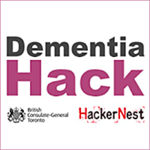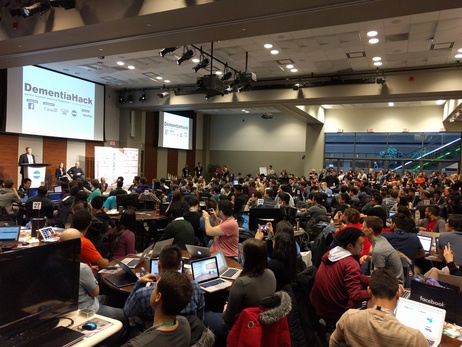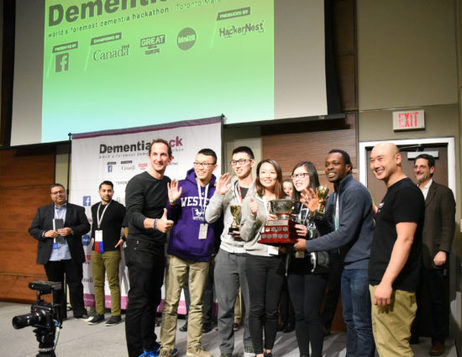Open Innovation Tackles Dementia Care Challenges
Published Sep-04-17Breakthrough:
An innovative platform to help researchers assess a dementia patient's cognitive ability.
Company:
Facebook/UK Government/HackerNest, Canada
The Story:
 You only have to do a little bit of search engine interrogation to see how widespread hackathons have become and the brilliant results they are generating. These open innovation events are proven forums for breakthrough thinking and breakthrough innovations that are helping to solve stubborn problems and create novel products.
You only have to do a little bit of search engine interrogation to see how widespread hackathons have become and the brilliant results they are generating. These open innovation events are proven forums for breakthrough thinking and breakthrough innovations that are helping to solve stubborn problems and create novel products. They encourage problem-solving and risk-taking in a reasonably informal environment. And when they cast their net wide they bring in new perspectives and outsider viewpoints. What's more, placing time limits on hackathons forces participants to focus their thinking with laser-like intensity.
One area that is benefiting from the fresh input that open innovation can provide is mental health and wellbeing. The DementiaHack is an international hackathon that seeks tangible, lasting solutions to address the most pressing challenges faced by caregivers and people with dementia. It lays claim to being the world's foremost dementia hackathon.
DementiaHack 2017
The third edition of the hackahton took place in Toronto, Canada in March 2017. It drew a fantastic response with more than 60 teams working for two-nonstop days, conceiving and developing life-improving hardware and software solutions.
The hackathon was spilt into four challenge sets and the winners of each set were invited to present a live on-stage demo to an audience that included venture capitalists, subject matter experts and heads of industry. Among those on the judging panel were representatives of the dementia and Alzheimer’s community and Toronto’s tech ecosystem.
The overall winner was Memo, a personal assistant that passively collects and analyzes patient data through natural voice. It also collects the frequency of a patient’s repeated questions which allows researchers to measure that person's cognitive ability.
The other winners were:
Connect Dem, a platform that connects volunteers who are looking to give back to the community with long term care homes that care for dementia patients.
Bright Guide, a cognitive assistance tool that helps families tend to persons living with Dementia. It also offers secure audio-video recording and playback to create instructions for daily living activities. In the early stages of dementia, a person would be able to use this tool independently.
Rescue, an ultra-responsive platform providing professional care, giving help at a moment's notice to primary and sole caregivers of people struggling with mid to late stage dementia.
Collaborative Thinking
Participants started with blank screens and a handful of proto-ideas, but by the end of 48 hours they had come up with breakthrough concepts that could improve the lives of people with dementia and those looking after them. As with all the best hackathons, DementiaHack demonstrates just what can be done when people with different backgrounds, disciplines, ideas and interests work collaboratively toward a common goal.
Next Story »



